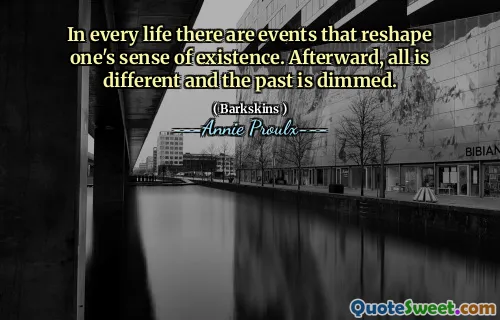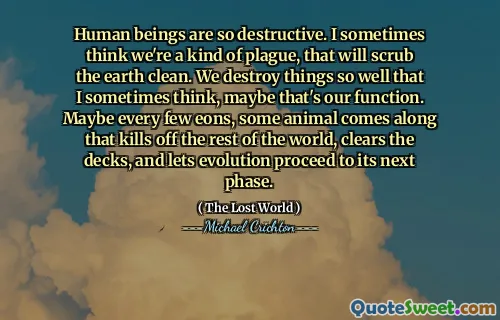And if ever I'm reduced to looking for a meaning to my life, you never can tell, it's in that old mess I'll stick my nose to begin with, the mess of that poor old uniparous whore and myself the last of my foul brood, neither man nor beast.
In Samuel Beckett's "Molloy," the protagonist reflects on the search for meaning in life amid chaos and despair. He suggests that when confronted with existential questions, he will first turn to the chaotic life of a "poor old uniparous whore," indicating a connection to marginal figures who experience suffering. This sets the tone for a journey through personal and social degradation, underscoring the complexity of identity when faced with such strife.
Through the lens of his relationship with this woman and his status as an outcast, the narrator grapples with his own existence, questioning his humanity. The mention of being "the last of my foul brood" highlights a sense of loss and isolation, as he contemplates what it means to be neither fully human nor animal. This bleak perspective emphasizes Beckett's exploration of existential themes, inviting readers to ponder the nature of meaning in a seemingly meaningless world.

